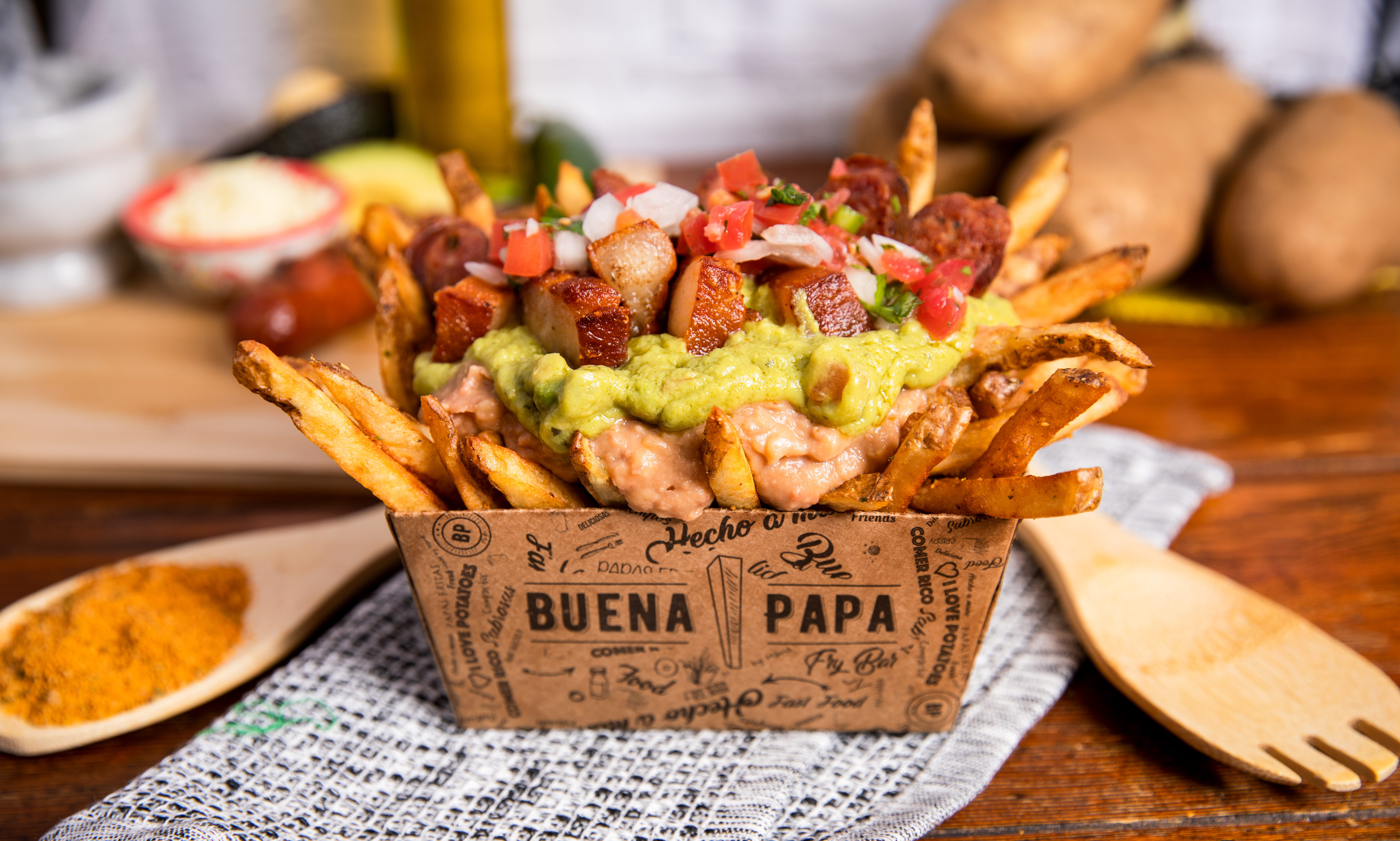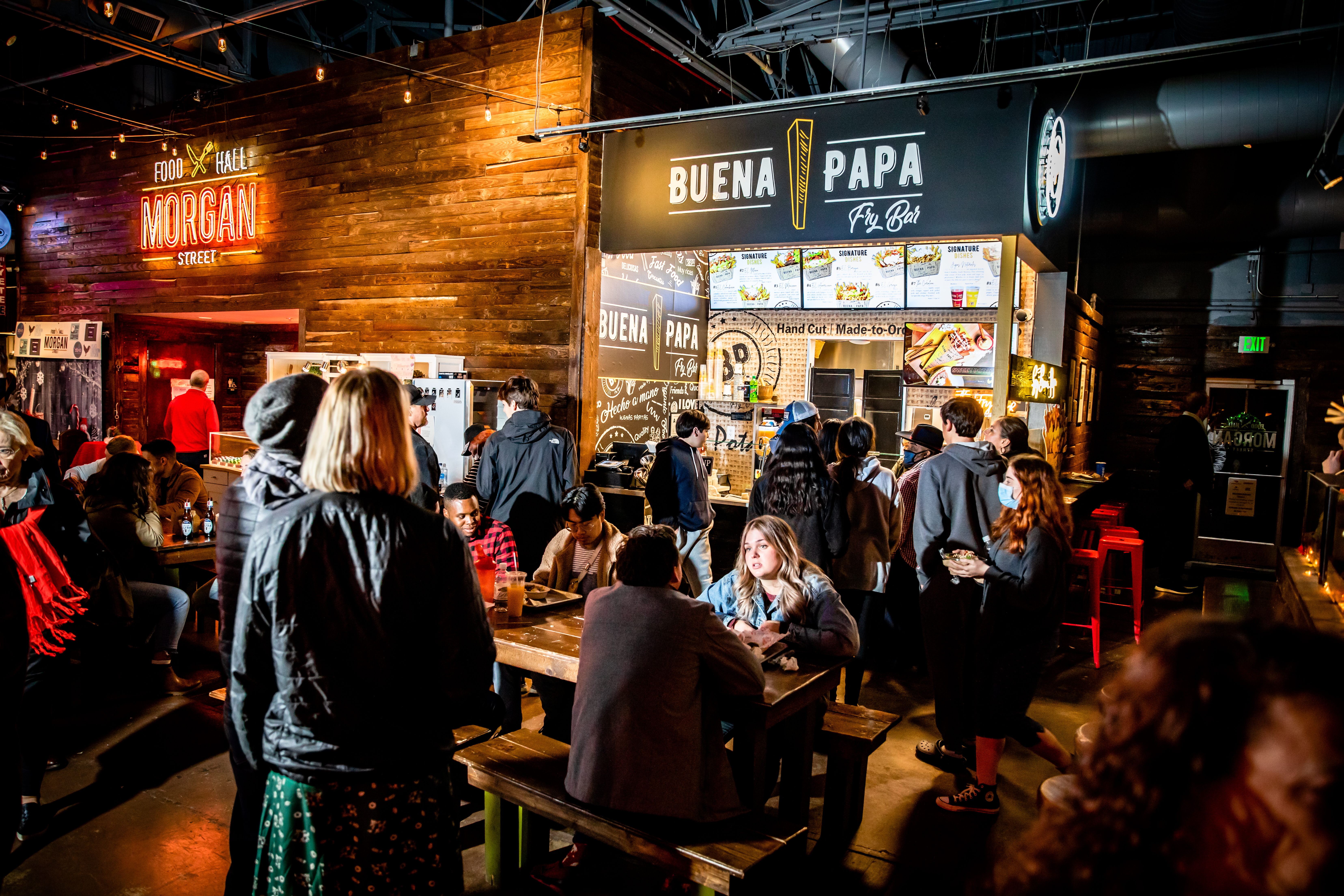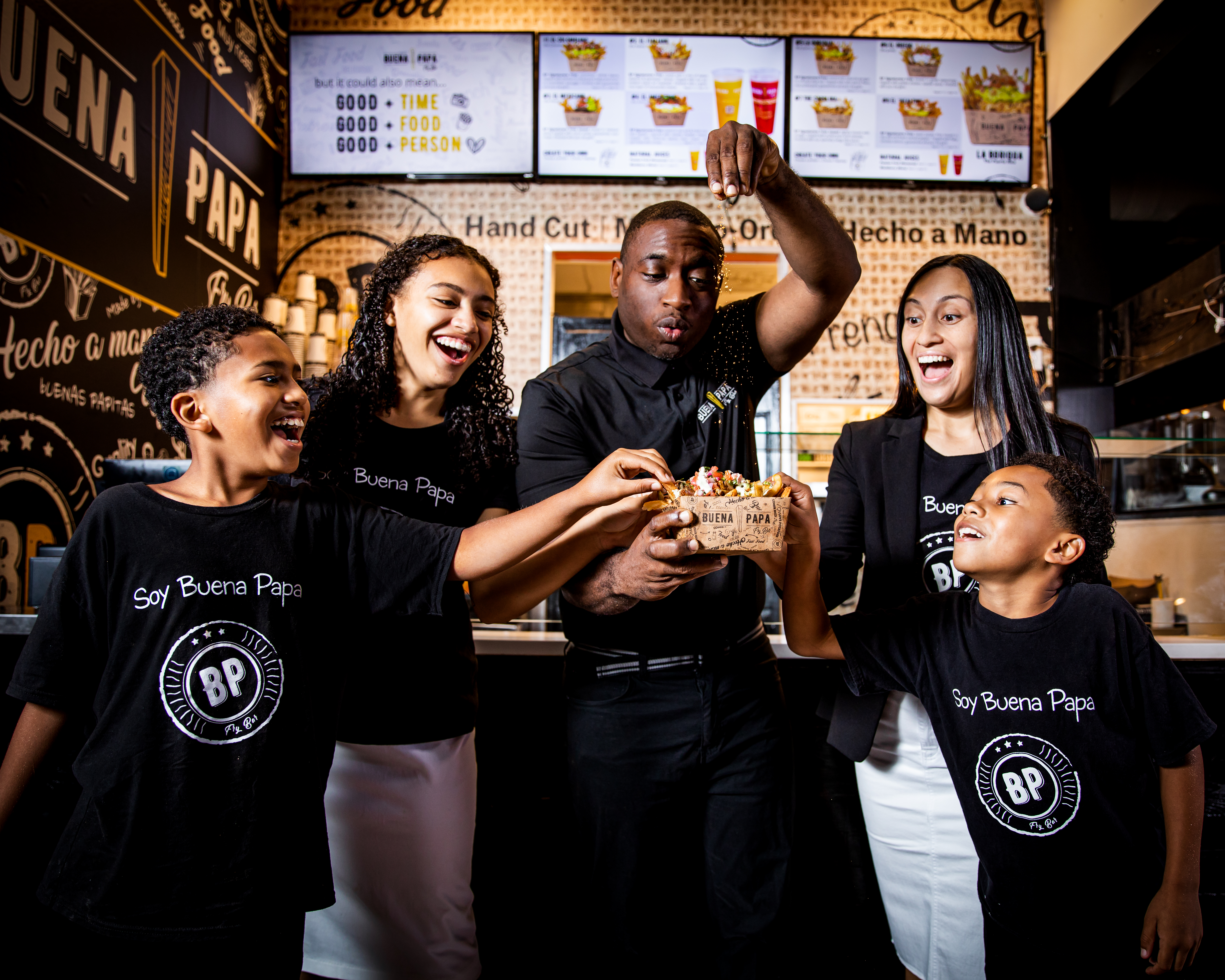Johanna Windon migrated to the US from Bogotá, Colombia, at six years of age with her family. On her first day of school in the US, she was escorted to the back of the class, where she’d sit for the rest of the year, thanks to her limited English skills. “There were a handful of us, maybe four bilingual kids. There was an Asian student, other Hispanic students, and me. At the time, they didn’t have the resources to help us the way they wanted to,” says Johanna.
Thirty years later, that single incident helped Windon and her husband, James, connect with technology innovator Robert Herjavec, an immigrant himself, and strike a $400,000-deal on this season of ABC’s Shark Tank.

Applying an Education Skillset to the Restaurant Business
Today, Windon and James own a string of fry restaurants called Buena Papa, but in a previous chapter of her life, one that lasted 12 years, Windon taught first and second graders in New Jersey.
Being relegated to the rear of the classroom as a child did not discourage Windon. She’d go on to be the first in her family to attend college, earning degrees in sociology and elementary education from St. Peter’s University in Jersey City. She found a job teaching in a charter school in Jersey City, staying for two years. The education chapter in Windon’s life came full circle when she was hired as a teacher by the same school she attended as a child in Morristown, NJ – the one in which she sat at the rear of the classroom as an ESL student. For 10 years she taught at that school until James, an entrepreneur, invited her to be his business partner.
At first blush, it seems that restaurateurs and teachers don’t share similar skillsets. But as Windon would learn when she and James opened Buena Papa, twelve years as a teacher provided her with valuable skills she could apply to the restaurant business. Both professions, for example, require dedication and determination and both teachers and restaurateurs educate their communities. Through Buena Papa’s menu, Windon’s not just offering quality food to the community but also educating the community about her Colombian culture.
Both educators and restauranteurs face their share of challenges, whether it’s meeting a specific education standard in the classroom or communicating information about food products as a restaurant owner. As an educator, “You always have that rainbow at the end in your mind, through benchmarks, and the principal emailing you, and the parents calling you. You always have to (keep an eye) on the bottom line,” says Windon. “There are certain numbers you have to look at for the health of the restaurant. (The same) in education. Kids have to read and write at a certain level for them to be deemed good students. It’s the same way,” says Windon.
Whether educating America’s youth or feeding the public, Windon says, transparency is essential. “The community wants to know where the potatoes come from and how we make the carne asada. (In education) parents want to know who you are and how dedicated you are to their children,” says Windon.

A New Chapter
Leaving education was one of the hardest decisions Windon had to make in her life. “I just felt like that chapter of my life was over, and I wanted to start a new one,” she says. The blow was softened when James, recognizing her endurance and dedication, invited her to participate in his latest entrepreneurial endeavor. After owning and operating a healthcare staffing service, James performed a market study hoping to open a maid service in northern New Jersey, but found the market was saturated. When he performed a similar study in and around Raleigh, North Carolina, he struck gold. Not only was new home construction off the charts in Raleigh, but James also found that most of the maid services were applying antiquated business models, like refusing to use the internet to their advantage. He moved his family to Raleigh and developed a business model appealing to millennials.
When COVID hit, the Windons received a letter from the US government forbidding their workers from entering people’s homes. “That was the end of that company. It was a very scary time,” says Windon. Windon drew on her years as a teacher to map out the next chapter of her life. “As an educator, I know that all we had to do was open a book or watch a video. If you can learn it, you can do it. I figured I didn’t know how to teach at first, but through time, I opened the manual, talked to other teachers, and ta da I had a twelve-year career in teaching. I knew I could do it again, but this time in a different industry,” says Windon.

Buena Papa and the Shark
Buena Papa was not born in a commercial test kitchen, but rather on a normal dinner night in Windon’s home kitchen and taste-tested by the family. Windon was preparing a Colombian dish called bandeja paisa, which featured beans, chorizo, pork bellies, and rice. “There I was, cooking everything up when I realized I had no rice. I was devastated and said, ‘Oh no, what am I going to do?’” she says.
James, who had been experimenting with fry recipes, suggested she sub in potatoes. Windon was incredulous, thinking he was “crazy.” But she relented and served bandeja paisa over French fries. “Magic happened at that moment,” she says. “Everyone was licking their fingers and saying how yummy this was,” she says. James’s entrepreneurial mind shifted into high gear and Buena Papa was born.
Appearing on Shark Tank and striking a deal with a shark was not in the Buena Papa game plan. That chapter began when a Buena Papa customer posted a video on TikTok that went viral, resulting in lines of up to two hours outside their stores and prompting a Shark Tank producer to invite the Windons to participate in the rigorous five month selection process. James credits the skills Windon honed as a teacher for their success on Shark Tank. “She was used to being in front of people, and we just played off each other and had a lot of fun with the project,” says James.
The Windons were initially seeking $400,000 for a seven percent interest in Buena Papa. After four of the five sharks passed, Herjavec offered the couple $400,000 for twenty percent. James immediately declined but continued to negotiate. After 45 minutes – about seven of which made it to air – Windon stepped in and suggested a compromise of $400,000 for nineteen percent. Herjavec agreed. Windon threw up her arms in victory and, seconds later, the three business partners were sharing hugs, laughing, and clapping. The Windons danced off the set to their post-negotiation interview.
Windon attributes her background as a teacher and immigrant as a key factor in the Windons’ success on Shark Tank. “Robert Herjavec is an immigrant too. We had that connection. So, when he found out that I had gone back to the school that sat me in the back of the class, he said, ‘I just have to work with you guys,’” says Windon.
Reflecting on the memory of being escorted to the back of the class because of her limited English skills, Windon offers a positive spin on that incident: “I had no idea that it was going to come back and shed a little light and help us close this big deal on Shark Tank.” •